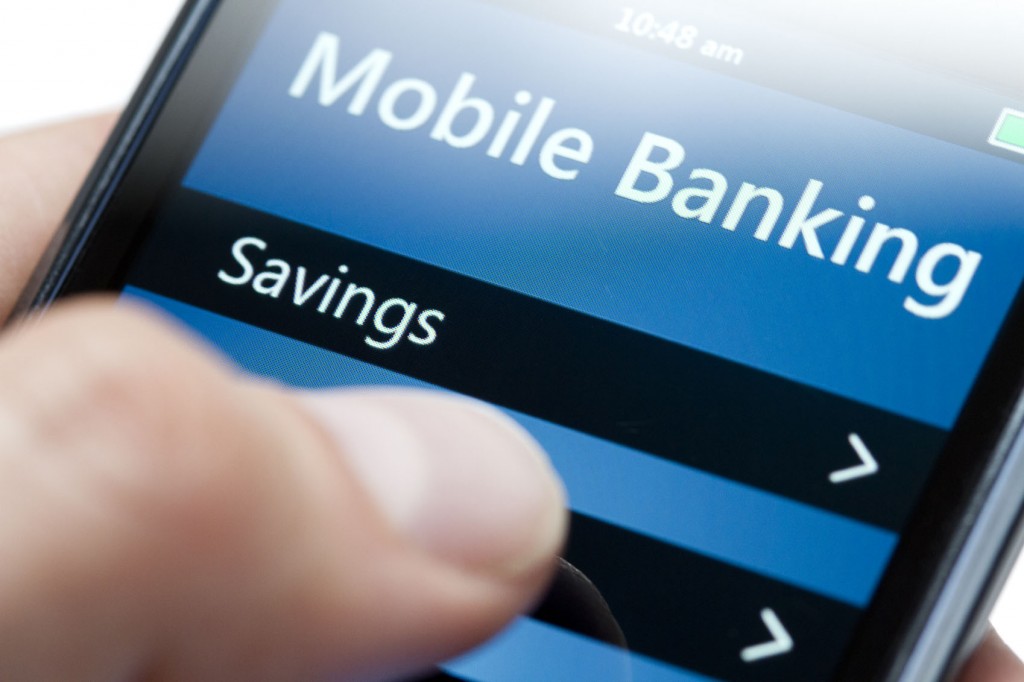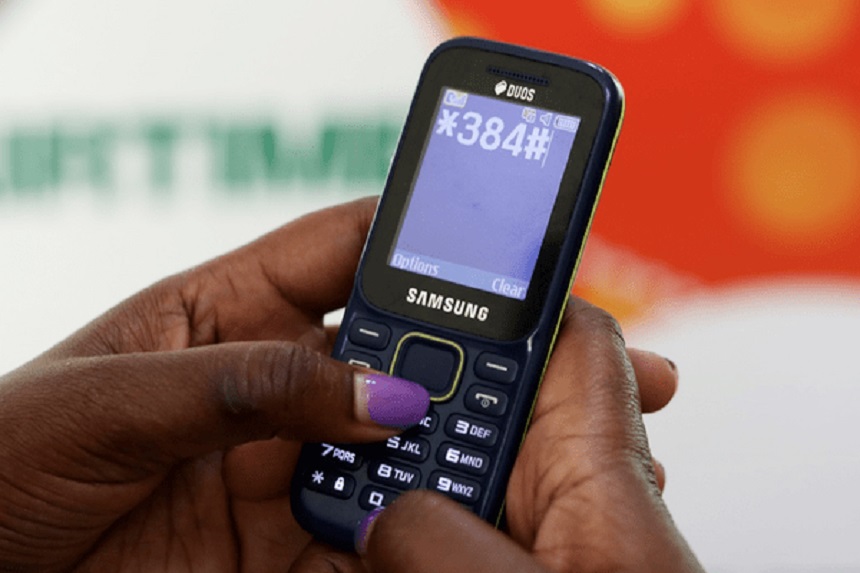Economy
Kenya Tops Nigeria in Mobile Money Transfers


By Modupe Gbadeyanka
Latest data from Central Bank of Kenya has shown that Kenyans moved a record $33 billion via mobile money platforms such as Safaricom, Airtel or Mobikash in 2016, up from $27.8 billion from the previous year.
However, Nigerians moved N756 billion or $2.4 billion in the same period under review, though Nigeria surpassed Kenya using other electronic platforms.
It was gathered that despite the economic downturn in Nigeria last year, over N56 trillion, about $177 billion was moved through the electronic channels in the Nigerian financial system.
The surge in mobile money transactions in Kenya by about $6 billion consolidates the country’s global position in the use of the technology that has revolutionised its financial sector.
The volume of cash transacted on the platform surpasses Kenya’s 2017/2018 budget, which is estimated at 25 billion dollars, underlying the role of the service to citizens and the economy.
In 2016, mobile money use peaked at $3.1 billion per month in December, according to the regulator’s data, up from $2.6 billion last year.
Christmas and New Year festivities normally give mobile money use a boost as Kenyans send and receive various amounts of cash from their loved ones.
On the opposite, the least transactions during the period were carried out in January, with Kenyans moving $2.4 billion.
Kenyans on average transacted during the period $2.7 billion a month up from $2.3 billion in the previous year.
Kenyans use mobile platforms to perform a range of financial services that include making money deposits, remittance delivery, payment of bills, withdrawal of cash and access of micro-finance credit.
Therefore, mobile money has become a necessity in the lives of Kenyans. Many citizens are unable to operate without it.
In the period of review, according to the Central Bank, the number of mobile money subscribers hit 35 million from 31.6 million in 2015, which means only less than 10 percent of the country’s people has not subscribed to mobile money.
The number of agents during the period clocked 165,908 from 143,946 at the end of 2015 as the sector continued to be a key employer.
Monthly transactions similarly swelled considerably, with East African nation citizens making over 146 million transactions a month from 107 million in 2015.
Kenya has six mobile money service providers namely Safaricom, Airtel, Orange, Equitel, Tangaza and Mobikash.
Safaricom’s Mpesa is the most popular, carrying out over 90 percent of the transactions. The company last week partnered with its peers in Rwanda, Tanzania and Uganda to enhance use of Mpesa in East Africa, an indication of expected growth.
The apex bank’s figures paint a healthy picture of growth of mobile money but Treasury has warned that collapse of service poses fiscal risks to the economy since various financial products have been leveraged on the payment channel increasing linkage between the technology and the banking sector.
“If this system was to be compromised, the impact would be substantial considering the linkages and the corporate tax revenue for government. The financial and other institutions linked to this system would be susceptible,” notes Treasury in its budget policy statement for this financial year.
Analysts expect mobile money use to sustain growth in the coming years as companies continue to innovate, people go for paperless transactions and unsubscribed embrace the service.
In contrast to Kenya, mobile money is yet to catch on in Nigeria.
In 2016, N756 billion or $2.4 billion was transacted through the channel. The number of mobile money customers in the country as at the end of last year stood at 5.54 million that are being cared for by 23,877 agents working for 21 Mobile Money Operators (MMO).
Likewise, goods and services worth N759 billion had been paid for using the 112,847 active POS terminals across the country. Payments through e-bills channel had the lowest volume of transactions of one million. Total value of transactions done through e-bills channel for the whole of 2016 stood at N339 billion.
Payments through webpay for 2016 stood at N132.36 billion which was done in 14.09 million transactions. NIBSS said in 2016, it has processed 11.7 million cheques with a value of N5.8 trillion. Corporate cheques accounted for the largest chunk of this figure as 5.9 million Corporate cheques valued at N3.7 trillion had been processed during the year while 2.7 million individual cheques valued at N0.94 trillion was processed.
Nigeria however scored higher in other electronic platforms.
This is asides the cash transactions done over the counter in the banking halls.
Total transactions through electronic payment platforms such as Automated Teller Machines (ATMs), Point of Sale Terminals (PoS), web payments, online transfers and mobile money from January to December last year hit N56.886 trillion.
According to the Nigeria Inter Bank Settlement System (NIBSS) which records and settles all electronic transactions in the country, online payments through the NIBSS Instant Payment (NIP) recorded the highest value, accounting for 67 per cent of total value of transactions while ATMs had the largest volume of transactions.
The value of funds that changed hands through NIP stood at N38 trillion which was done in 154.5 million transactions. On a daily basis, an average of 422,142 transactions had been done through the NIP channel as more Nigerians adopt the cashless policy of the Central Bank of Nigeria.
Total bank accounts held in the country by banks at the end of 2016 rose to 96.22 million from 85.02 million in 2015, while active accounts rose from 58.97 million to 65.48 million by the end of last year.
NAN
Economy
Champion Breweries Concludes Bullet Brand Portfolio Acquisition

By Aduragbemi Omiyale
The acquisition of the Bullet brand portfolio from Sun Mark has been completed by Champion Breweries Plc, a statement from the company confirms.
This marks a transformative milestone in the organisation’s strategic expansion into a diversified, pan-African beverage platform.
With this development, Champion Breweries now owns the Bullet brand assets, trademarks, formulations, and commercial rights globally through an asset carve-out structure.
The assets are held in a newly incorporated entity in the Netherlands, in which Champion Breweries holds a majority interest, while Vinar N.V., the majority shareholder of Sun Mark, retains a minority stake.
Bullet products are currently distributed in 14 African markets, positioning Champion Breweries to scale beyond Nigeria in the high-growth ready-to-drink (RTD) alcoholic and energy drink segments.
This expansion significantly broadens the brewer’s addressable market and strengthens its revenue base with an established, profitable portfolio that already enjoys strong brand recognition and consumer loyalty across multiple markets.
“The successful completion of our public equity raises, together with the formal close of the Bullet acquisition, marks a defining moment for Champion Breweries.
“The support we received from both existing shareholders and new investors reflects strong confidence in our long-term strategy to build a diversified, high-growth beverage platform with pan-African scale.
“Our focus now is on disciplined execution, integration, and delivering sustained value across markets,” the chairman of Champion Breweries, Mr Imo-Abasi Jacob, stated.
Through this transaction, Champion Breweries is expected to achieve enhanced foreign exchange earnings, expanded distribution leverage across African markets, integrated supply chain efficiencies, portfolio diversification into high‑growth consumer beverage categories, and strengthened presence in the RTD and energy drink segments.
The acquisition accelerates Champion Breweries’ transition from a regional brewing business to a multi-category consumer platform with continental reach.
Bullet Black is Nigeria’s leading ready-to-drink alcoholic beverage, while Bullet Blue has built a strong presence in the energy drink category across several African markets.
Economy
M-KOPA Nigeria Plans Expansion to Edo, Others After N231bn Credit Milestone

By Adedapo Adesanya
Emerging market fintech firm, M-KOPA, has announced plans to deepen its reach in Nigeria to the South South and South East regions, starting with Edo this year, after providing N231 billion in credit to over 1 million customers in the country.
The firm released its first Nigeria-focused Impact Report, which showed that Nigeria is M-KOPA’s fastest-growing market and fastest to reach the milestone.
Since its foray into the Nigerian market in 2019, M-KOPA has been working to dismantle barriers to financial inclusion by providing flexible smartphone financing and digital financial tools that align with how people in the informal economy earn and manage their money.
It operates in six states in the country, including Lagos, Ogun, and Oyo, among others.
The report highlights the company’s contribution to income generation, digital inclusion and economic opportunity for Every Day Earners across the country.
The report showed that M-KOPA has enabled 290,000 first-time smartphone users, while 56 per cent of agents accessed their first income opportunity through the platform.
It showed high income and livelihood gains among its users, with about 77 per cent of customers leveraging smartphones or digital loans obtained through the platform to generate income, indicating that access to financed devices is directly supporting micro-entrepreneurial activity and informal sector productivity.
Furthermore, 75 per cent of users report higher earnings since gaining access to M-KOPA’s services, suggesting measurable improvements in personal revenue streams. On the distribution side, 99 per cent of agents disclose increased earnings, reflecting positive spillover effects across the company’s value chain.
In addition, 81 per cent of long-term customers state that their household expenses have improved, pointing to enhanced financial stability and better consumption smoothing over time.
Speaking on the report, Mr Babajide Duroshola, General Manager, M-KOPA Nigeria, said, “Nigeria represents extraordinary potential, and we’re proud that it has become M-KOPA’s fastest-growing market. Our Impact Report shows that when Every Day Earners gain access to the right digital and financial tools, they use them to create stability and long-term progress for their families. This is about access that unlocks opportunity and sustained prosperity.”
On its expansion plans Nigeria-wide, the M-KOPA helmsman said, “Many of the states we are considering are already similar to the ones we are currently in proximity… So, there is proximity and similarity between these states, and that’s what we are going to do, starting with Edo.”
He noted that as M-KOPA Nigeria continues to expand, the focus remains on ensuring more everyday earners gain access to the digital and financial tools they need to build resilient, prosperous futures in Nigeria’s rapidly digitising economy.
Economy
Tinubu Okays Extension of Ban on Raw Shea Nut Export by One Year

By Aduragbemi Omiyale
The ban on the export of raw shea nuts from Nigeria has been extended by one year by President Bola Tinubu.
A statement from the Special Adviser to the President on Information and Strategy, Mr Bayo Onanuga, on Wednesday disclosed that the ban is now till February 25, 2027.
It was emphasised that this decision underscores the administration’s commitment to advancing industrial development, strengthening domestic value addition, and supporting the objectives of the Renewed Hope Agenda.
The ban aims to deepen processing capacity within Nigeria, enhance livelihoods in shea-producing communities, and promote the growth of Nigerian exports anchored on value-added products, the statement noted.
To further these objectives, President Tinubu has authorised the two Ministers of the Federal Ministry of Industry, Trade and Investment, and the Presidential Food Security Coordination Unit (PFSCU), to coordinate the implementation of a unified, evidence-based national framework that aligns industrialisation, trade, and investment priorities across the shea nut value chain.
He also approved the adoption of an export framework established by the Nigerian Commodity Exchange (NCX) and the withdrawal of all waivers allowing the direct export of raw shea nuts.
The President directed that any excess supply of raw shea nuts should be exported exclusively through the NCX framework, in accordance with the approved guidelines.
Additionally, he directed the Federal Ministry of Finance to provide access to a dedicated NESS Support Window to enable the Federal Ministry of Industry, Trade and Investment to pilot a Livelihood Finance Mechanism to strengthen production and processing capacity.
Shea nuts, the oil-rich fruits from the shea tree common in the Savanna belt of Nigeria, are the raw material for shea butter, renowned for its moisturising, anti-inflammatory, and antioxidant properties. The extracted butter is a principal ingredient in cosmetics for skin and hair, as well as in edible cooking oil. The Federal Government encourages processing shea nuts into butter locally, as butter fetches between 10 and 20 times the price of the raw nuts.
The federal government said it remains committed to policies that promote inclusive growth, local manufacturing and position Nigeria as a competitive participant in global agricultural value chains.
-

 Feature/OPED6 years ago
Feature/OPED6 years agoDavos was Different this year
-
Travel/Tourism10 years ago
Lagos Seals Western Lodge Hotel In Ikorodu
-

 Showbiz3 years ago
Showbiz3 years agoEstranged Lover Releases Videos of Empress Njamah Bathing
-

 Banking8 years ago
Banking8 years agoSort Codes of GTBank Branches in Nigeria
-

 Economy3 years ago
Economy3 years agoSubsidy Removal: CNG at N130 Per Litre Cheaper Than Petrol—IPMAN
-

 Banking3 years ago
Banking3 years agoSort Codes of UBA Branches in Nigeria
-

 Banking3 years ago
Banking3 years agoFirst Bank Announces Planned Downtime
-

 Sports3 years ago
Sports3 years agoHighest Paid Nigerian Footballer – How Much Do Nigerian Footballers Earn













